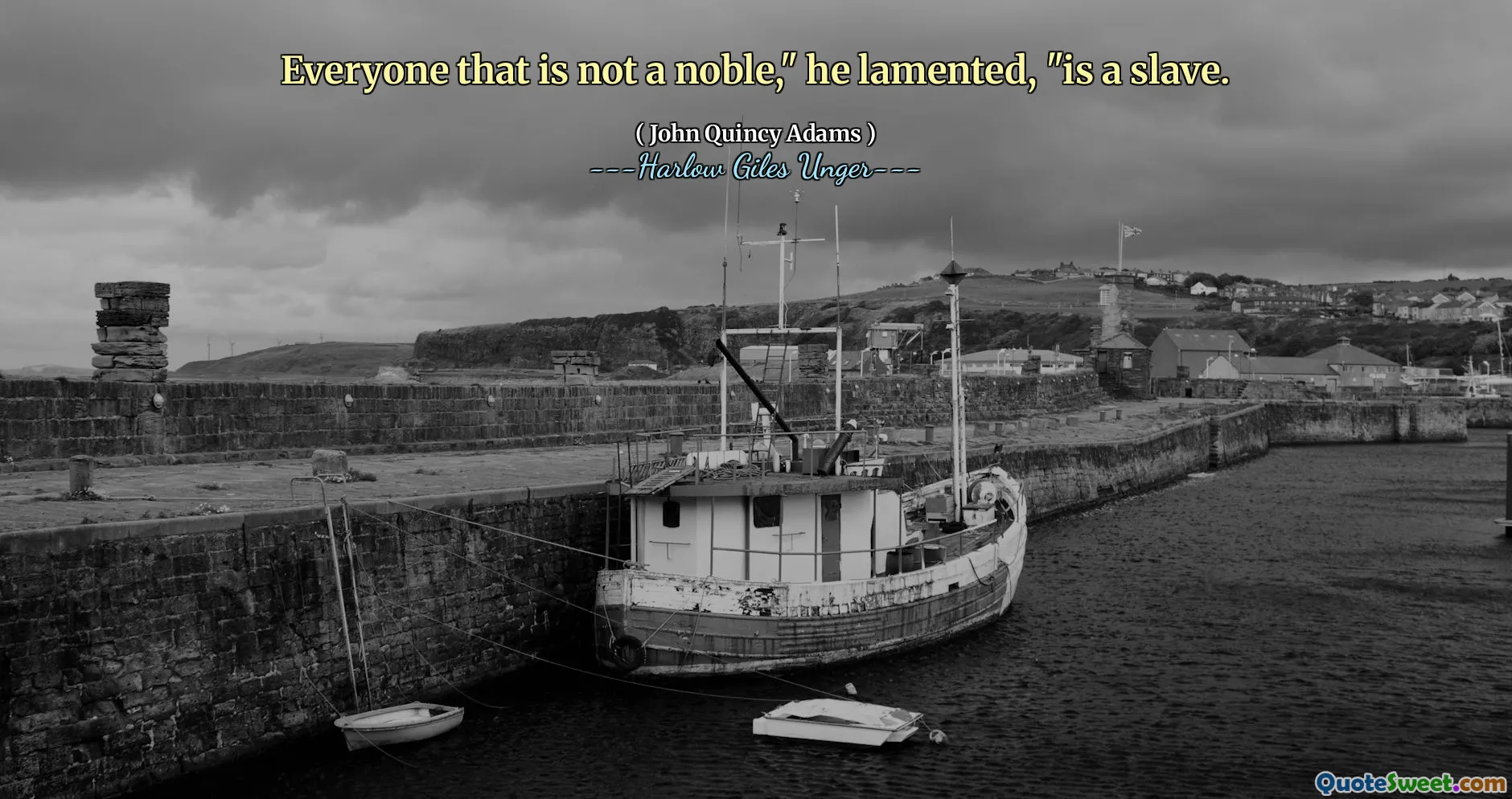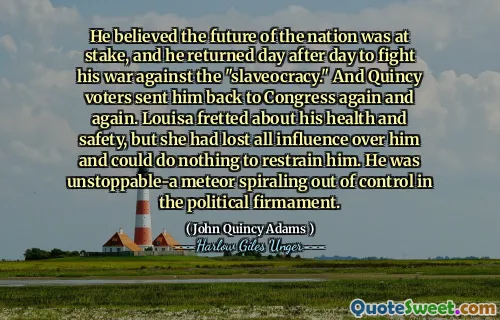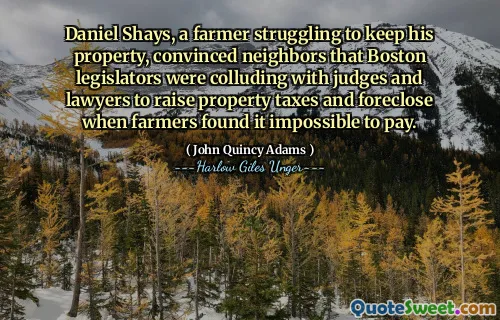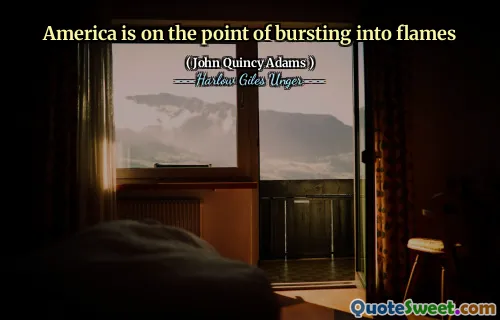
Everyone that is not a noble," he lamented, "is a slave.
In Harlow Giles Unger's book about John Quincy Adams, the author highlights Adams's belief that social hierarchy defines freedom and servitude. He expressed concern over the plight of those classified as commoners, whom he saw as marginalized compared to the elite. This sentiment underscores his belief in the rigid class structures of his time.
Adams lamented that without noble status, individuals are relegated to a life akin to slavery, emphasizing the importance of social class in determining one's liberty. This perspective reflects the larger historical context, where the aristocracy held significant power, and common citizens were often denied true agency.










